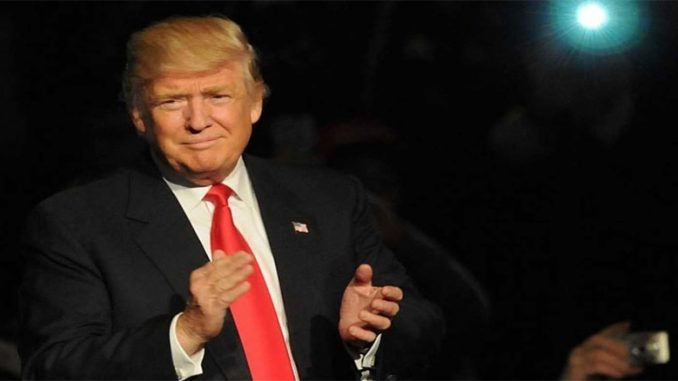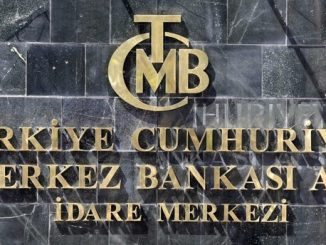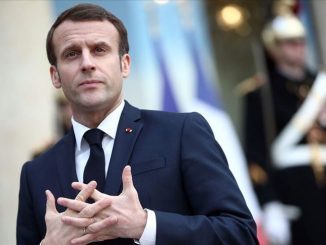
 BY: HILAL KAPLAN
BY: HILAL KAPLAN
When Barack Obama was first elected U.S. president, some 44 animals were sacrificed in a Turkish village to celebrate his victory, which is one of the greatest symbols of delight in our tradition.
Prayers were said for him and the villagers held placards that read, “You are one of us,” and “We love you, Obama,” during the celebrations.
Abdulkerim Kulaz, a candidate deputy from the center-right True Path Party (DYP) who organized the event, issued a statement in the name of the villagers.
“We have sacrificed 44 animals to celebrate Obama being elected as the 44th president of the U.S. Turkish people have been supporting Obama all along, which sparked the love we have for him,” the statement read.
I really wish Turkish journalists would find Kulaz and ask what he thinks now.
Upon reading an article by Tim Arango that was published in The New York Times, the mouthpiece of the current U.S. administration, I inevitably recalled this incident while it is Obama’s last two weeks in the White House.
The article titled, “In Turkey, US hand is seen in nearly every crisis,” is the product of an attempt to condescend and affront rather than reflecting an effort to understand Turkey, just like all the other articles published regarding Turkey in recent years.
Consequently, some facts are deliberately not mentioned in the article.
I am writing this article for those who want to grasp why the Turkish people’s love for Obama, whose middle name is Hussein and who began his historic Egypt speech with, “Assalaamu Alaykum,” eventually evolved into hate. I guess what additionally motivates me to write these words is that I expect some wisdom from the incoming Donald Trump administration and that they won’t repeat the same mistakes.
The abovementioned article does not state the fact that Gülenist Terror Group (FETÖ) leader Fetullah Gülen, who is protected by the U.S., is seen as accountable for the July 15 coup attempt by more than 90 percent of the Turkish public according to surveys, which means that it is not only President Recep Tayyip Erdoğan’s proponents that hold this view.
Also, it is known that the persons giving reference to Gülen for his green card application include the CIA’s former Middle East Chief Graham Fuller, the CIA’s former Director of Central Intelligence for Analysis and Production George Fidas, and former U.S. Ambassador to Ankara Morton Abramowitz. This fact consolidates Turkish public opinion.
As the U.S. Secretary of Defense Ashton Carter admitted after a question from Lindsey Graham during his Senate hearing, that the U.S. provided intelligence, military training and weapons to the People’s Protection Units (YPG), which is the Syrian offshoot of the outlawed PKK that is listed as a terrorist group by both the U.S. and EU.
The article does not even mention the name of the PKK, which claimed responsibility for at least six deadly bomb attacks, and many other attacks that killed military and police officers in Turkey within the recent year. Instead, they are only referred to as “Kurdish militants,” associating terrorism with ethnicity.
The Justice and Development Party (AK Party) government, which has granted rights to Kurdish citizens to the extent no government has done before, and Turkey, which provides training, support and occasionally weaponry aid to the peshmerga forces of Iraqi Kurdistan, are represented as Kurdophobes.
Prime Minister Binali Yıldırım said in Parliament three days ago, “Turkey is not holding the new administration responsible for arming the YPG but expects the Trump administration to end this shame.”
It is possible to seek an answer for why Turks look for traces of the U.S. through this lens in the face of the Russian ambassador’s assassination only hours before an agreement guaranteed by Ankara and the Kremlin entered into force, and the subsequent attack that was professionally organized and which employed rare military equipment such as steel bullets.
Also, representing President Erdoğan and his proponents as anti-secularist does not comply with the objectivity of journalism, particularly when it is considered that he celebrated the new year with a video message on New Year’s Eve and became maybe the only Muslim leader in the world speaking highly of secularism during his Egypt speech in 2011 and Croatia speech in 2016.
Furthermore, the article did not mention that Daesh calls Erdoğan “the grandson of Atatürk” and defines him as unislamic, while regarding Turkey as an anti-Islamic regime that must be overthrown.
Yet, do they really need such details if their only wish is to represent the Turkish people as paranoid and Erdoğan as a villain?
* Hilal Kaplan is a Turkish columnist. She writes for Daily Sabah Turkish newspaper.
(Published in Daily Sabah, on Friday, Jan. 6, 2017)



